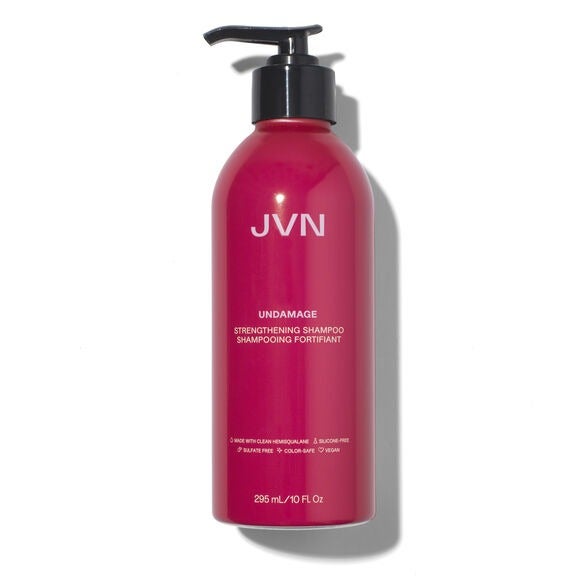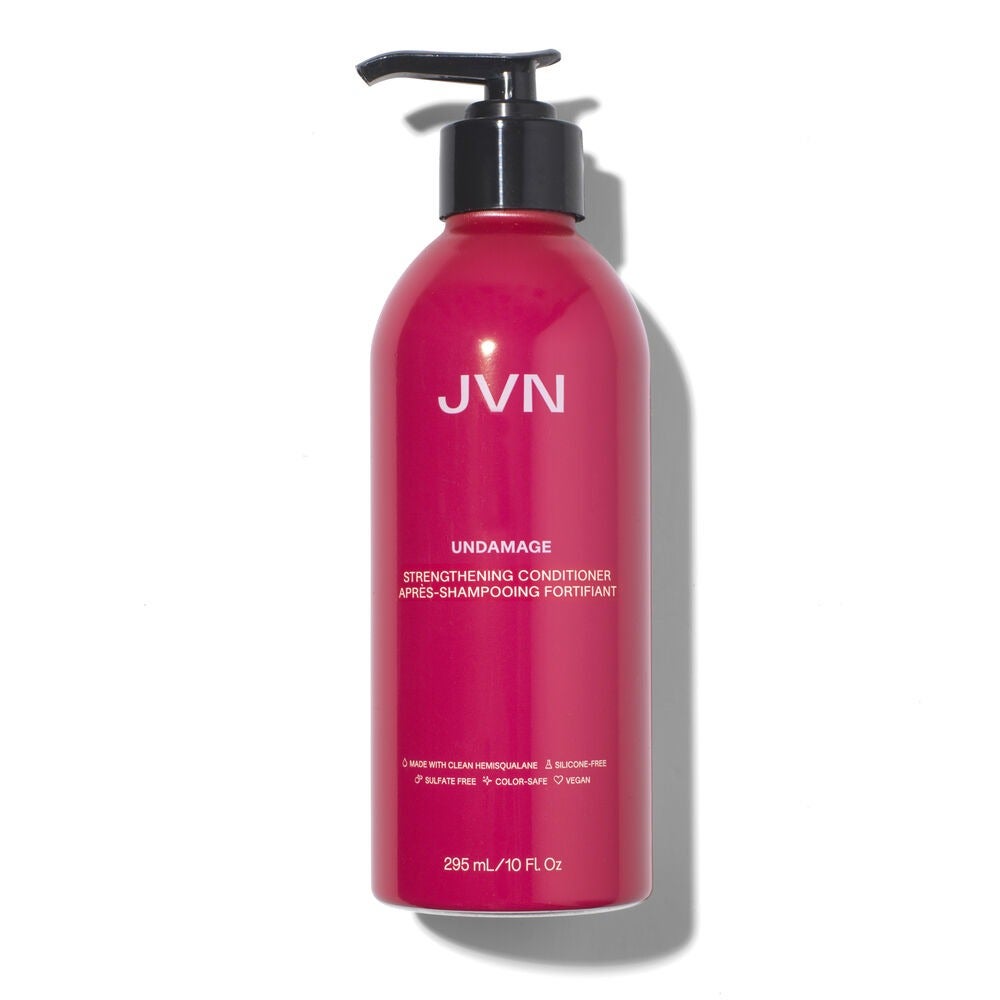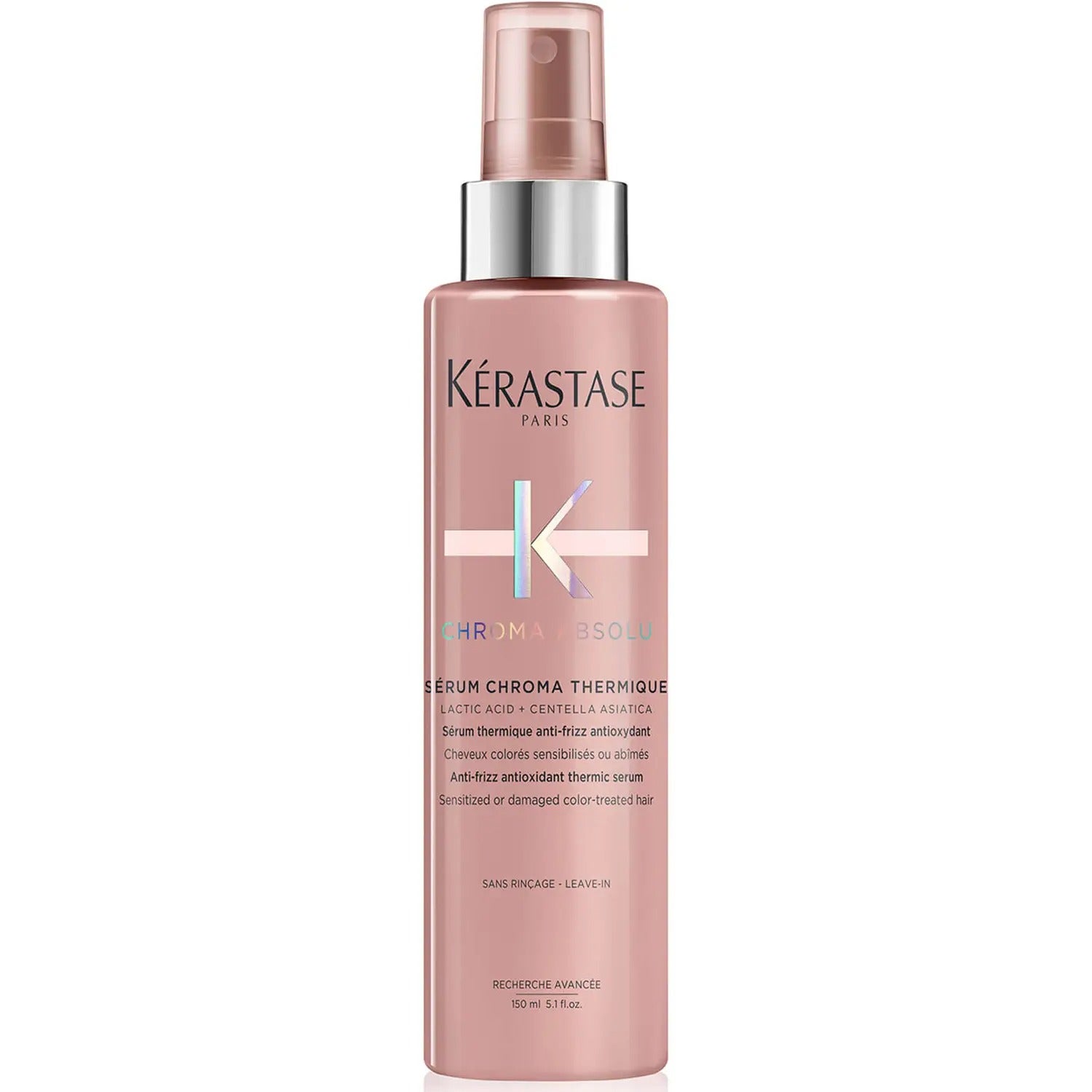Is Reverse Hair Washing The Answer To Healthier Lengths? I Tried It
Photographed by Hayleigh Longman.
At Refinery29 Australia, we’re here to help you navigate this overwhelming world of stuff. All of our picks are independently selected and curated by the editorial team, but we may earn commission or other compensation from the links on this page.
How do you wash your hair? You might take inspiration from skincare and double cleanse, or skip the conditioning step for lack of time. Perhaps you have to hype yourself up for wash day or maybe you can't get each morning going without squeaky clean lengths. There's no right or wrong way to wash your hair – the best way is whatever works for you – but it's safe to say that the internet is jam-packed with interesting hair washing tips.
AdvertisementADVERTISEMENT
This week, nothing is buzzier than 'reverse hair washing'. The method pretty much does exactly what it says on the tin and involves conditioning your hair before you shampoo it. Google searches around the technique have been bubbling but switching the order of your in-shower routine isn't exactly a brand-new concept.
You might point out that reverse hair washing is similar to the 'pre-poo' method favoured by those with curly and natural hair — and it is. Pre-poo often involves using an oil treatment or a hair mask prior to shampoo to prevent the lather from stripping hair of much-needed moisture. Reverse hair washing is pretty much the same idea but just enlists conditioner.
I remember trying reverse hair washing when it started trending around five years ago. Surprisingly, it worked for my virgin hair, making it softer, smoother and more resilient to the heat from my straighteners. Somewhere along the line, I returned to washing my hair 'normally' — but were the results a placebo effect or does reverse hair washing actually work? And can it boost the health of my thrice-dyed and now heat-frazzled lengths?
What is reverse hair washing and what are the benefits?
"Reverse hair washing is the process of conditioning your hair before shampooing, which some people believe will help the overall condition of their hair and reduce damage," explains Jordan Jones, senior stylist at Taylor Taylor London. "It's said to do this by preventing the drying aspects of the shampoo from penetrating the hair shaft because it has been coated by a conditioner." Jordan says the trend's comeback makes sense and it has something to do with the heatwave we've just experienced, not to mention holiday plans which involve swimming in the sea and chlorine — both of which can dry out hair and cause damage.
AdvertisementADVERTISEMENT
Sarah Brass, founder of Taylor Taylor London, says that when it comes to reverse hair washing, conditioner is usually concentrated to the mid-lengths and ends. "Unless you have exceptionally dry hair we never recommend taking conditioner to the roots," said Sarah. "Comb through or massage gently and wait for five to 15 minutes before rinsing off and shampooing as normal."
Not only is reverse hair washing intriguing for those who want to protect their dry lengths but Sarah says it could actually be a great hack for those with greasy or fine and limp hair. "It's some pretty basic science," explains Sarah. "Your conditioner will coat the scalp and hair so when you wash it off with shampoo, rather than just a rinse at the end, there will be less conditioner residue to weigh down your hair."
As a result, says Sarah, fine or thinning hair may look more voluminous and greasy hair may also last longer between washes. As an added bonus, if you have very long hair or hair that is prone to tangling, applying conditioner first can make the whole washing process a lot more gentle, as in-wash tangling is minimised, she adds.
Does reverse hair washing work?
If you're an R29 regular, you'll know that I'm more than happy to put my hair on the line for a trend. Though I have tried this before, my hair is in a fragile condition and the hot weather hasn't helped. Long story short, my strands are brittle and in need of some serious TLC so reverse hair washing seemed like a good idea.
AdvertisementADVERTISEMENT
I reached for JVN Undamage Strengthening Shampoo, $28, and Conditioner, $28, which is packed with moisturising glycerin, ceramides and jojoba. After drenching my lengths in slightly warm water (I find this irritates my scalp a lot less than hot) I raked a small puddle of conditioner through my mid-lengths and ends, and slathered any leftover product on my roots, as they tend to get very frizzy.
I went about my scrub/shave/lather routine in the hope that it would give the conditioner time to work its magic, then I rinsed and shampooed once. I usually double cleanse my hair as I get sweaty during workouts and test out lots of new products but I felt my hair didn't really need it after rinsing out the conditioner. Saving on product? Check.
I have to admit that my hair felt slightly rough when I rinsed away the shampoo and I panicked. There was no satisfying, soft slip like usual. Then again, I always factor in a little hair serum when styling (Kérastase Chroma Absolu Sérum Chroma Thermique, $54), which makes my parched hair feel like silk.
Before
After
The real proof was in the pudding when my hair was fully dry — and in the summer, I let it air-dry to save on heat damage. As you can see in the photos, my hair was a tad less frizzy, perhaps because it wasn't as dry or stripped. The main difference was in how my hair felt, though: a bit softer and more manageable when styling. I rate this method but it's drilled into me to shampoo first and condition last so I can't promise I'll always remember to reverse the steps...
AdvertisementADVERTISEMENT
Are there any downsides to reverse hair washing?
Though reverse hair washing sounds promising for many hair types and textures, Sarah says that one of the main reasons for using a conditioner last is to seal and flatten the hair cuticle. This traps in moisture, makes hair softer and shinier and helps to protect it from damage caused by UV rays in summer and heated styling tools. Could using conditioner first leave the hair exposed? Potentially, explains Sarah. "It could lead to damage and long-term dryness."
She shares a great tip, though. "Many dermatologists and trichologists would actually suggest a three-step wash: deep condition first, wash with shampoo second and then apply a light conditioner, then rinse."
Should you try reverse hair washing?
Sarah says that reverse hair washing was dreamed up because shampoos of yesteryear were very stripping. Formulas have come a long way since then. We're no longer afraid of ingredients like sulphates (which make shampoo lather up and clean the hair and scalp effectively) as they are incorporated into products in much smaller amounts.
Moe Harb, hair colour specialist at Beauty Club, suggests investing in a moisturising shampoo. "A shampoo packed with moisturising ingredients [such as glycerin, shea butter and oils] does not strip all moisture out of the hair." That way, even if you don't practise reverse hair washing, your hair is likely to be in a much better condition.
If you're not convinced but want to shake up your hair routine for the better, Sarah suggests investing in a good hair mask and using it before you shampoo. "These pre-wash masks provide deep conditioning and were actually specifically designed to be used on dry hair before any water or shampoo comes into play," says Sarah.
AdvertisementADVERTISEMENT
In fact, Sarah explains that hair is far more absorbent when dry and is able to take on more of the nutrients in treatment masks such as these. "Applying conditioner to wet hair is far less effective than using these products on dry hair," says Sarah. "You can apply dry masks at any time of day and leave them on as long as you like before jumping in the shower for a light shampoo and then a quick condition. It's basically next-generation reverse washing."
Lastly, Sarah advises that if you have dry or naturally coarse hair you probably want to stick to the traditional concept of washing your hair first and then using a conditioner.
Want more? Get Refinery29 Australia’s best stories delivered to your inbox each week. Sign up here!
AdvertisementADVERTISEMENT









